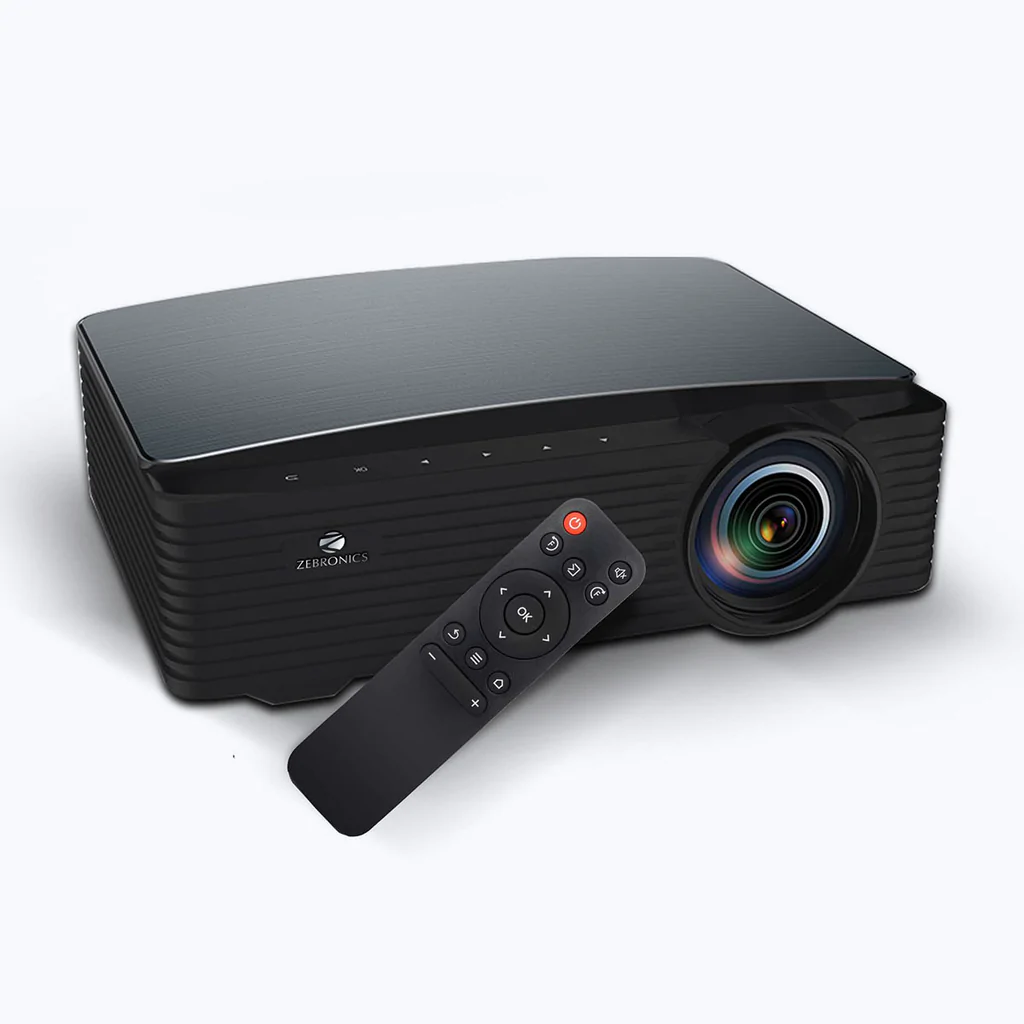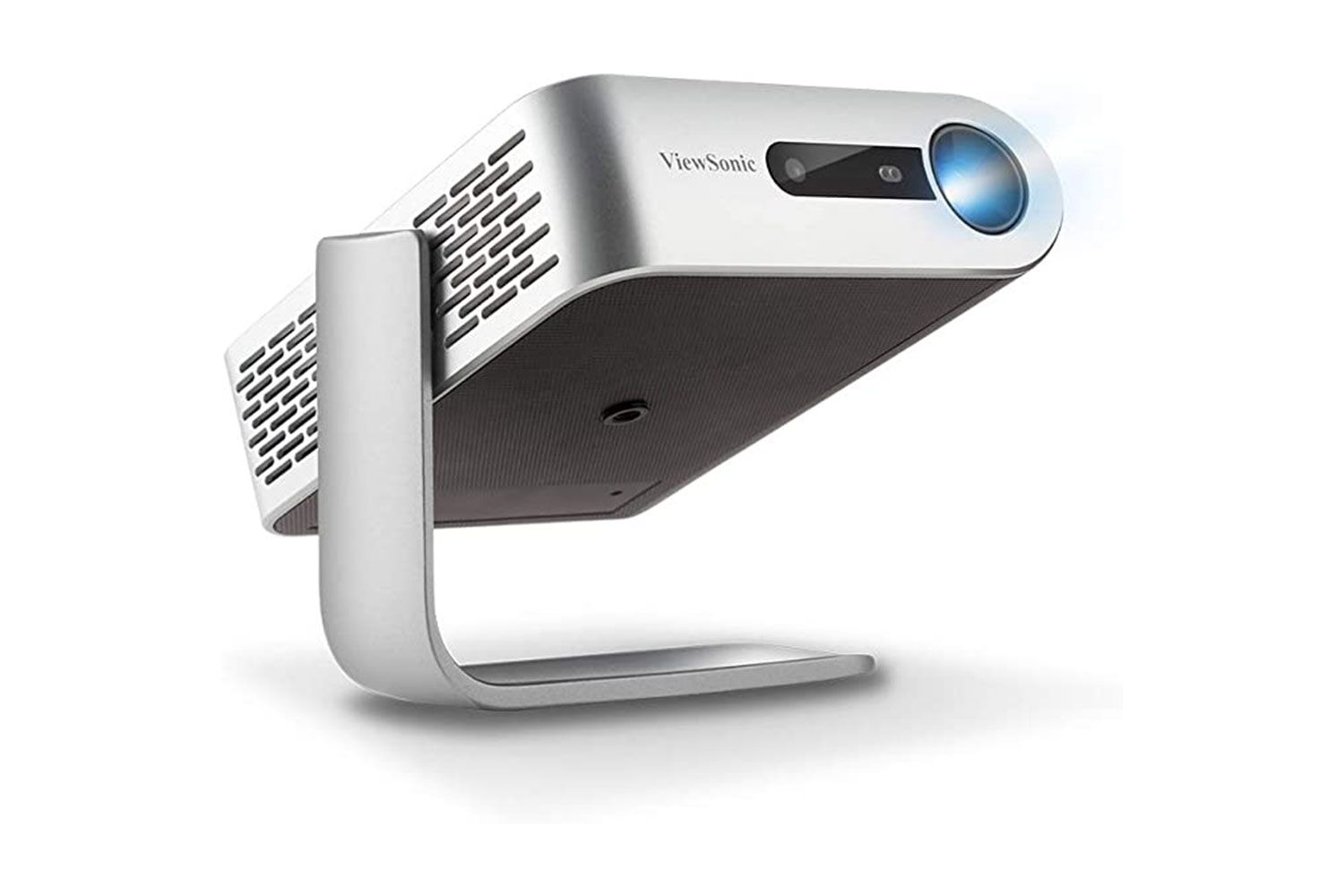Projector vs. TV
When it comes to choosing between a projector or a television for your entertainment needs, it's important to consider the advantages and disadvantages of each option. Both have their own unique features that make them suitable for different situations.

Televisions have long been the traditional go-to choice for home entertainment. With their easy setup and high resolution, color accuracy, and brightness, televisions provide a hassle-free viewing experience. The advent of Smart TVs has further enhanced the entertainment value by offering onboard apps and easy internet connectivity. Whether it's streaming your favorite shows or browsing the web, Smart TVs offer convenience at your fingertips.
However, projectors have come a long way in recent years and now offer a compelling alternative to traditional televisions. Projectors provide a cinematic experience right in your own home. Their portability and versatility allow you to project images on any flat surface, transforming any room into a personal theater. The larger screen size capabilities of projectors make them ideal for movie nights or sports events, providing a truly immersive viewing experience. With advancements in technology, projectors now offer high-quality images and even surround sound.
That said, projectors do have some drawbacks. They require a dark room for optimal performance, as ambient light can affect the image quality. Additionally, projectors usually have a shorter lamp life compared to televisions, meaning they may need more frequent bulb replacements over time.
On the other hand, televisions are more suitable for well-lit spaces and offer superior resolution even in bright environments. Fully assembled and requiring less space, televisions are the more convenient option for those seeking a hassle-free setup. Moreover, Smart TVs provide a range of features for seamless content streaming and accessing online applications.
Ultimately, the choice between a projector and a television will depend on your individual preferences and needs. If you enjoy hosting movie nights or crave a larger-than-life viewing experience, a projector might be the perfect fit. On the other hand, if you prioritize convenience, high-definition resolution, and smart features, a television would be the better choice.
Consider your viewing habits, room conditions, and budget to make an informed decision that will enhance your entertainment experience. Both projectors and televisions have their pros and cons, so weigh your options carefully before making a final choice.
Projector or TV
Making the Right Choice for Your Entertainment Needs

When it comes to selecting the perfect device for your home entertainment, understanding the differences, advantages, and disadvantages of projectors and televisions is crucial. With evolving technology, both projectors and TVs have their unique features that cater to different preferences and requirements.
For those seeking a larger-than-life viewing experience and enjoying movie nights at home, projectors offer an attractive option. With the ability to project images up to 100 inches or more, projectors provide a cinematic feel that even the largest televisions cannot match. They are also more cost-effective for achieving a large screen experience. However, projectors require controlled lighting conditions for optimal performance and may need occasional bulb replacements.
On the other hand, if your viewing habits predominantly occur during the daytime or in a well-lit room, televisions would be a better fit. Modern TVs not only deliver excellent resolution but also perform well even in brightly lit environments. With their fully assembled setup, compact size, and smart features for seamless content streaming, TVs offer convenience and versatility. However, the cost of larger screen sizes can escalate quickly.
Ultimately, when deciding between a projector and a TV, it is vital to consider your specific needs and preferences. Do you prioritize a theater-like experience with a large screen? Are you willing to accommodate controlled lighting for optimal projector performance? Or do you value high-definition resolution, convenience, and smart TV features? Evaluating these factors, alongside your room conditions and budget, will help in making the right choice for your entertainment needs.
In conclusion, there is no one-size-fits-all solution in the projector vs. TV debate. Each option has its advantages and potential drawbacks. By carefully weighing your requirements and preferences, you can determine whether a projector or a TV is the ideal fit for your home entertainment setup. So, take your time, analyze your needs, and make an informed decision that will elevate your entertainment experience to new heights.
Conclusion
In the ongoing debate of projectors versus TVs, there is no definitive conclusion that suits everyone's needs. Each option offers unique advantages and potential drawbacks to consider. The decision ultimately comes down to your personal viewing habits, room conditions, and budget.
If you crave a larger-than-life cinematic experience and enjoy hosting movie nights, a projector may be the ideal choice. With the ability to project images up to 100 inches or more, projectors offer a more immersive viewing experience at a potentially lower cost. However, they require controlled lighting and periodic bulb replacements.
On the other hand, if you primarily watch content during the daytime or in a well-lit room, a TV may be more suitable. With excellent resolution, smart features, and convenience, TVs are a go-to option for many. Additionally, they come fully assembled and require less space.
Ultimately, carefully weighing your requirements and preferences will guide you towards the right choice for your entertainment needs.
FAQS
Is a Projector Suitable for Daily Use?
While projectors can be used daily, they might not be the most practical choice for regular use due to factors like bulb replacements and the need for controlled lighting conditions. Projectors are better suited for special movie nights or occasional use for a larger screen experience.
How Long Can a Projector Run Continuously?
The continuous run time of a projector depends on various factors such as the model, cooling system, and overall build quality. However, most projectors have recommended usage intervals and require cool-down periods after a few hours of use to prevent overheating or potential damage to the device.
Is a Projector a Good Choice for a Bedroom?
Using a projector in a bedroom can create a unique and immersive viewing experience. However, factors like ambient light control and limited viewing distance could be challenges to consider. Additionally, noise levels from the projector's fan and the need for a screen or suitable wall surface should be taken into account before choosing a projector for the bedroom.
